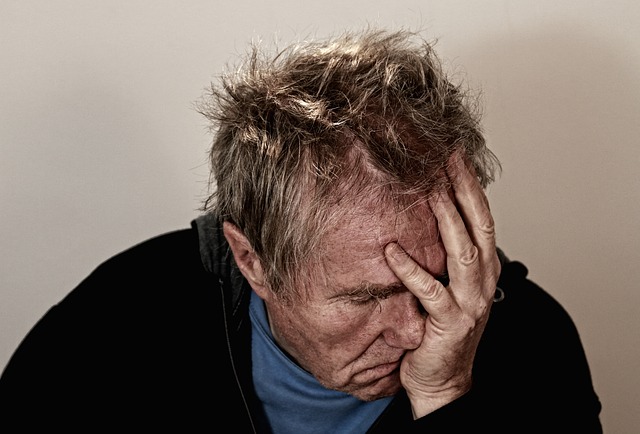
Addiction is a familiar word, but what exactly does it mean? It goes without saying that no one wakes up one day with the decision to become an addict. Addiction appears secretly, silently, as if it was creeping into our life through the back door.
Although most people do not consider themselves addicted, in our day and age more and more people have a problem in this field. When we are in a state of frustration, anger, when we are unhappy, we probably do not realize that our condition can lead to addiction. at first it seems that addiction has nothing to do with weakness or bad will, we explain innocently that it is simply seeking joy and satisfying one’s needs. Many people think that alcoholics or drug addictions are weak and not moral persons.
The great anthropologist Gregory Bateson was the first scholar to question this opinion. According to him, an addict wants something more than he usually brings us life and is convinced that it exists. I feel lost. she discovers that alcohol or other intoxicants temporarily and partially quench her thirst. Addicted people often feel the fear of emptiness. To fill the emptiness, they use a variety of ways to deal with it, e.g. illegal interests, gambling, sex, and social life brought to the point of absurdity. Recovery Direct in South Africa
The specificity of addiction lies in the fact that the way to escape from this existential emptiness is drugs, the entire lifestyle associated with it: chase after the next “plot”, acquiring money, raw materials for production. At some point, all activity and energy is directed at this struggle that fills the addict completely. Escaping into addiction therefore becomes a way of life, although in essence is its avoidance, slow suicide. It can be said that it is an escape from some fundamental truth about yourself.
Drugs are a source of income for hundreds of thousands of people in our country and millions on a global scale. The resistance to radical statutory solutions will be powerful. Almost all of the capital that is in the hands of influential drug-business people comes from crimes and crimes. The procedure takes place at the expense of addicts and their families and winds a spiral of dishonesty and social pathologies. You hear stories about dealers who go to school and give out drugs. Every ten-year-old should hear basic information about addiction to a man whom he values, admires and trusts.
An armed guard at the school door and trained drug brigade dogs are of no avail if the child wants to take the drug. For this you need to do everything so that such an idea is not born in the young mind. Adolescents from addicted families have a genetic predisposition in this direction, just like others may have a hereditary tendency to diabetes, high blood pressure. However, a young man – even without being addicted – can easily overdose, may face increasing social, legal, school and family difficulties. It can expose your physical, intellectual, emotional and spiritual development to probably irreparable losses due to alcohol or drugs. It follows that we adults should not allow young people to use them – addiction recovery in South Africa
.
If the drug-abused adolescents are diagnosed as being in the early stages of addiction, it means that their condition will continue to worsen unless treatment is given. Addiction is the crossing of an invisible, but very real border between desire and need for a drug. It is exceeded only once and irretrievably. As anonymous alcoholics say: “who once was a gherkin will never be a fresh cucumber again”.
Adolescents who are becoming more and more harmful with drug use and even addiction manifest their behavioral and personality changes that are visible, predictable and beyond their control. One of the reasons children use alcohol and drugs is that adults they often don’t take it seriously. This not serious attitude can take many forms: sometimes the problem of drug addiction is denied or considered to be the stage that all teenagers must go through. Sometimes it is a feeling of embarrassment towards the child, who is known to sometimes take this uncertainty as to what to do. However, the worst is to disregard the problem and minimize the danger.
The parents’ problem is that the addiction to how much of our lives we devote to children, the results are largely independent of us. We have no control over the inner nature of our children, over their individual characteristics and addictions with which they are born. There is so much behind the control of parents, teachers, educators. However, everything you experience in childhood is of great importance, and parents are the main creators of these experiences. Adolescents who do not use alcohol or drugs, or use them to a small extent, come from families that have good relations and where parents do not drink at all or moderately. Such youth assess their parents as demanding, but 3 claims that you can communicate with them. Children from such families feel that they are meticulously observed and know that their parents will not let them drink alcohol or take drugs. Preventive education does not guarantee that young people do not use drugs, but reduces the risk. Recovery Direct in South Africa
Love shown consistently and concretely gives the child a feeling of bond with the family, which is an extremely important element of preventive education. If we want our attitude towards alcohol and drugs to be more important for our child than the opinions of his addicted peers, we must create an environment where the joy of family intimacy is greater than “high”. In the nineties, research was conducted in the USA among junior high school students. It turned out that the use of drugs and alcohol by young people does not depend on the level of wealth, type of school or interests. The significant element is the family and its cohesion and consistency in upbringing.